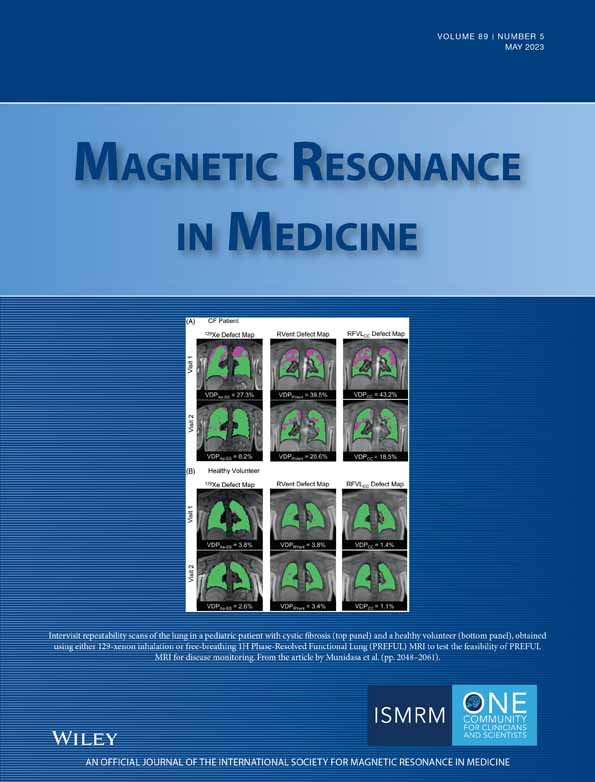Improving accelerated MRI by deep learning with sparsified complex data
Click here for author-reader discussions
This work was presented in part at the Joint 2022 Annual Meeting of ISMRM-ESMRMB.
Funding information: National Natural Science Foundation of China, Grant/Award Numbers: 61372024; U1909209; Children's & Women's Health Centre of British Columbia
Abstract
Purpose
To obtain high-quality accelerated MR images with complex-valued reconstruction from undersampled k-space data.
Methods
The MRI scans from human subjects were retrospectively undersampled with a regular pattern using skipped phase encoding, leading to ghosts in zero-filling reconstruction. A complex difference transform along the phase-encoding direction was applied in image domain to yield sparsified complex-valued edge maps. These sparse edge maps were used to train a complex-valued U-type convolutional neural network (SCU-Net) for deghosting. A k-space inverse filtering was performed on the predicted deghosted complex edge maps from SCU-Net to obtain final complex images. The SCU-Net was compared with other algorithms including zero-filling, GRAPPA, RAKI, finite difference complex U-type convolutional neural network (FDCU-Net), and CU-Net, both qualitatively and quantitatively, using such metrics as structural similarity index, peak SNR, and normalized mean square error.
Results
The SCU-Net was found to be effective in deghosting aliased edge maps even at high acceleration factors. High-quality complex images were obtained by performing an inverse filtering on deghosted edge maps. The SCU-Net compared favorably with other algorithms.
Conclusion
Using sparsified complex data, SCU-Net offers higher reconstruction quality for regularly undersampled k-space data. The proposed method is especially useful for phase-sensitive MRI applications.
Open Research
DATA AVAILABILITY STATEMENT
The code for the SCU-Net algorithm is available at https://github.com/ZhyJin/SCUNET.




